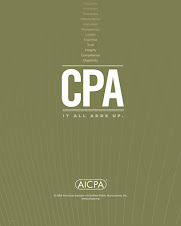I was recently speaking about taxes at a convention in Orlando, Florida. After my session one of the participants came up and said that he did not like my reference to a few of the tax "loopholes." He felt that a loophole was a shoddy idea that was on the verge of something that was illegal.
That conversation
got me to thinking. "Loopholes" is one of those words with different
connotations for different listeners. To some, it's a dirty word — I've seen
editorials calling the exclusion for employer-provided health insurance a
"loophole," and making it clear that a "loophole" is one
small step removed from out-and-out graft. Others of us love it. In fact, from
time to time I refer to myself as "Loophole Larry."
My understanding of the word "loophole" has
always been a law that's passed for one purpose that gets used for another —
sort of like when a doctor prescribes a drug for off-label use. My favorite
example is Code Section 132(j)(4):
(4) On-premises gyms and other athletic facilities
(A) In general
- Gross income shall not include the
value of any on-premises athletic facility provided by an employer to his
employees.
(B) On-premises
athletic facility - For purposes of
this paragraph, the term 'on-premises athletic facility' means any gym or other
athletic facility -
(i) which is
located on the premises of the employer,
(ii) which is
operated by the employer, and
(iii)
substantially all the use of which is by employees of the employer, their
spouses, and their dependent children (within the meaning of subsection (h)).
Do you have a home-based business? Do you or any of your
family qualify as employees? Do you have a pool in your backyard?
Congratulations! You've got a tax-deductible on-premises employee athletic
facility!
Now, we all know Washington didn't pass that law to let
folks like us write off our swimming pools, treadmills, or elliptical machines.
They passed it to clarify that when Corporate America sticks a gym in the
basement of his big glass tower, his employees don't get stuck with taxable
income for working out instead of taking lunch.
But clever planners like us take a law that was passed
for one purpose, and explore it to the fullest definition. If a big employer
can deduct the money it spends providing a swimming pool for its employees,
should a small employer not be entitled to the same opportunity? For some, it's
a "loophole" and for others it's a "strategy." Either way,
it takes astute planning to take a law that was passed for one purpose and use
it for a slightly different but honest and defensible purpose.
So I've never shied away from promoting
"loopholes" as something my clients should want to take advantage of.
So if we want to get technical, Dictionary.com defines
"loophole," in part, as "a means of escape or evasion; a means
or opportunity of evading a rule, law, etc.: There are a number of loopholes in
the tax laws whereby corporations can save money." Is that the same as the
understanding I just outlined? Nope. Is it a pejorative? Not to me, but I see
how it is for others.
So, what's our bottom line here? My job is to point out
alternatives to my clients. Let them
know the color (black, white, or gray), but don't let them not follow the
law.
I try to throw in a quick definition when we use those
terms. For example, I might tell a client "when I say 'loophole,' I mean a
law that Congress passes for one purpose that gives someone else an unintended
benefit. It's perfectly legal, even if Washington didn't realize that's how we
could use that law."



No comments:
Post a Comment